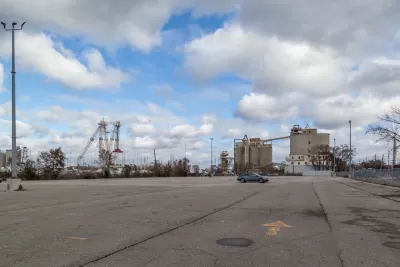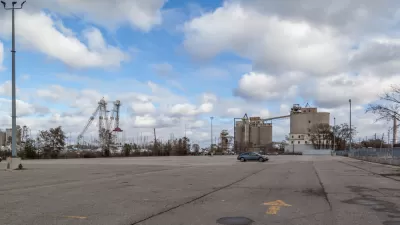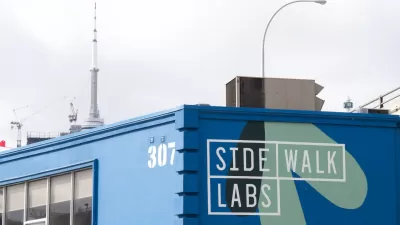An evaluation committee made up of Waterfront Toronto staff has given a green light for the Sidewalk Labs master plan for Toronto to proceed to the next stages of planning.

Donovan Vincent reports that a six-member evaluation committee tasked with assessing Sidewalk Labs' proposal for the Toronto waterfront neighborhood of Quayside.
"The technical evaluation by Waterfront Toronto staff, released Tuesday [February 18], says of the 160 'solutions' or innovations Google sister firm Sidewalk Labs has put forward in its master plan for the proposed 12-acre neighbourhood, a large majority — 144 innovations or 90 per cent — meet Waterfront Toronto’s objectives," explains Vincent.
"The list of innovations supported by Waterfront Toronto will be prioritized, and the number may be pared down by the agency and Sidewalk Labs to fit the 12-acre Quayside, Waterfront Toronto says."
The innovations winning approval from Waterfront Toronto include "a mass timber factory producing materials for the construction for wood buildings, robots that detect when trash bins are full, roofs covered in vegetation to reduce stormwater runoff, a patent pledge of Sidewalk Labs’ digital innovations that would support the growth of Canadian innovations, and the use of common standards for digital systems and technologies used at Quayside." The article also lists some of the 16 innovations that didn't pass muster.
FULL STORY: Sidewalk Labs project has ‘sufficient merit’ to move to the next phase, evaluation committee says

Study: Maui’s Plan to Convert Vacation Rentals to Long-Term Housing Could Cause Nearly $1 Billion Economic Loss
The plan would reduce visitor accommodation by 25,% resulting in 1,900 jobs lost.

North Texas Transit Leaders Tout Benefits of TOD for Growing Region
At a summit focused on transit-oriented development, policymakers discussed how North Texas’ expanded light rail system can serve as a tool for economic growth.

Why Should We Subsidize Public Transportation?
Many public transit agencies face financial stress due to rising costs, declining fare revenue, and declining subsidies. Transit advocates must provide a strong business case for increasing public transit funding.

How Community Science Connects People, Parks, and Biodiversity
Community science engages people of all backgrounds in documenting local biodiversity, strengthening connections to nature, and contributing to global efforts like the City Nature Challenge to build a more inclusive and resilient future.

Alabama: Trump Terminates Settlements for Black Communities Harmed By Raw Sewage
Trump deemed the landmark civil rights agreement “illegal DEI and environmental justice policy.”

Dear Tesla Driver: “It’s not You, It’s Him.”
Amidst a booming bumper sticker industry, one writer offers solace to those asking, “Does this car make me look fascist?”
Urban Design for Planners 1: Software Tools
This six-course series explores essential urban design concepts using open source software and equips planners with the tools they need to participate fully in the urban design process.
Planning for Universal Design
Learn the tools for implementing Universal Design in planning regulations.
City of Santa Clarita
Ascent Environmental
Institute for Housing and Urban Development Studies (IHS)
City of Grandview
Harvard GSD Executive Education
Toledo-Lucas County Plan Commissions
Salt Lake City
NYU Wagner Graduate School of Public Service




























